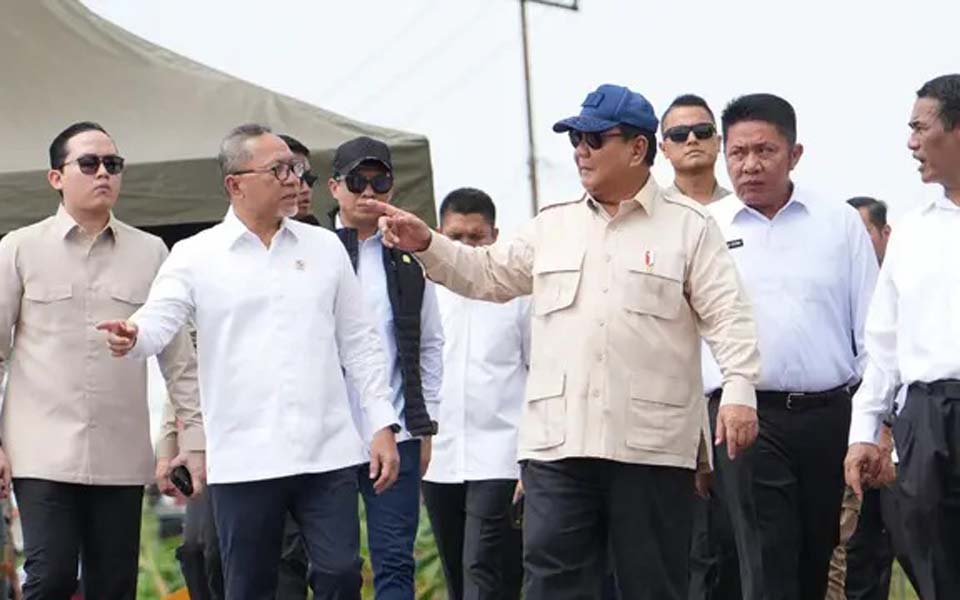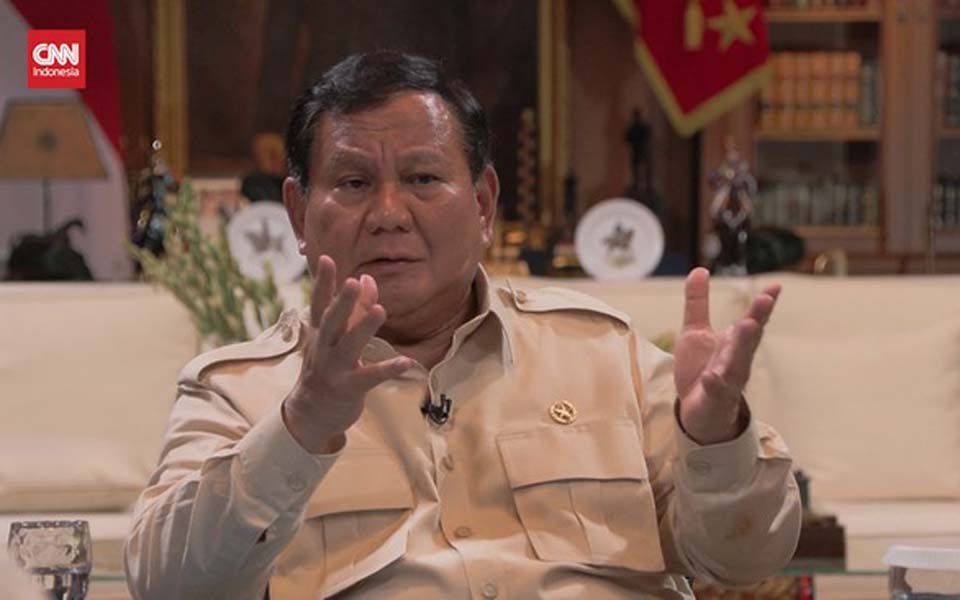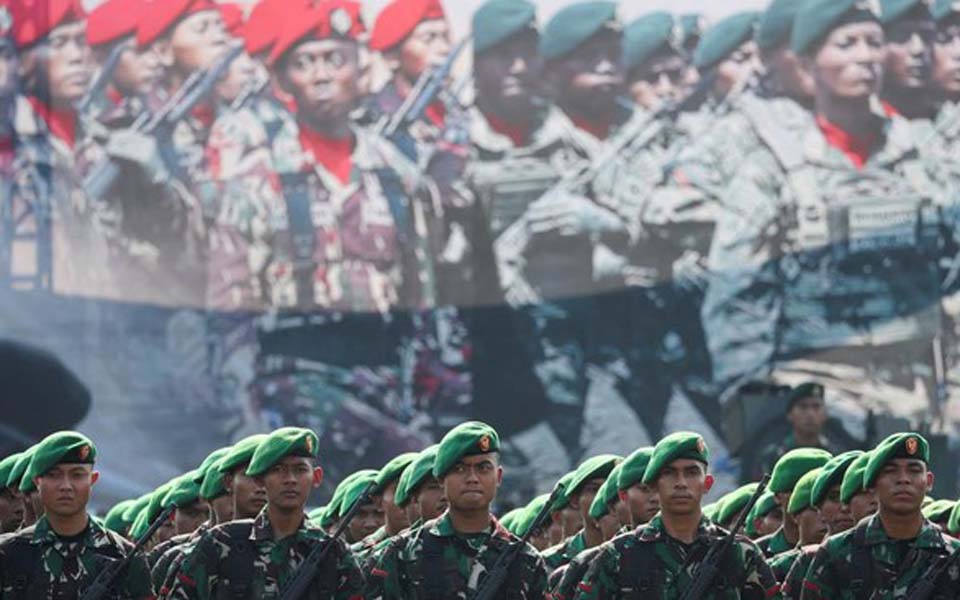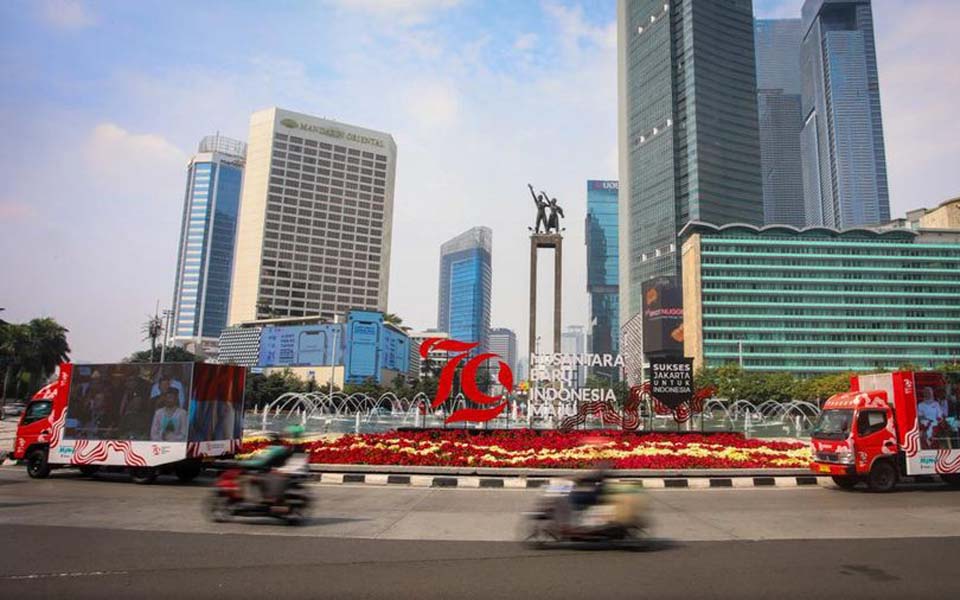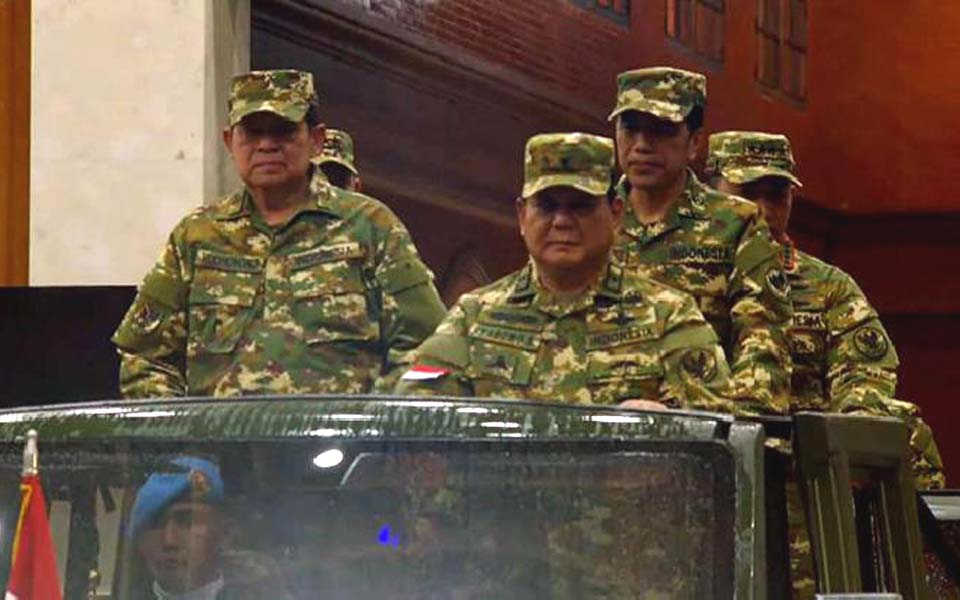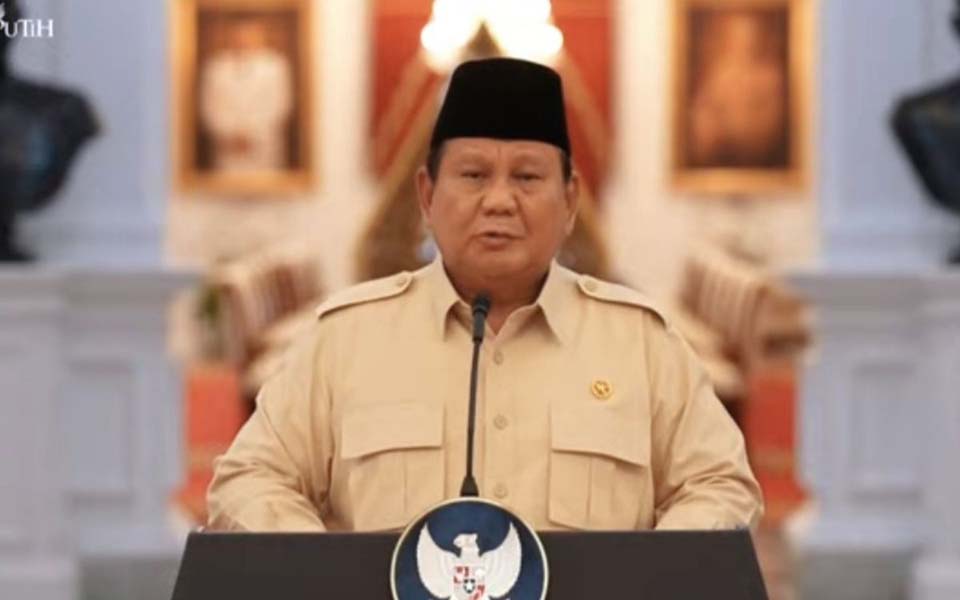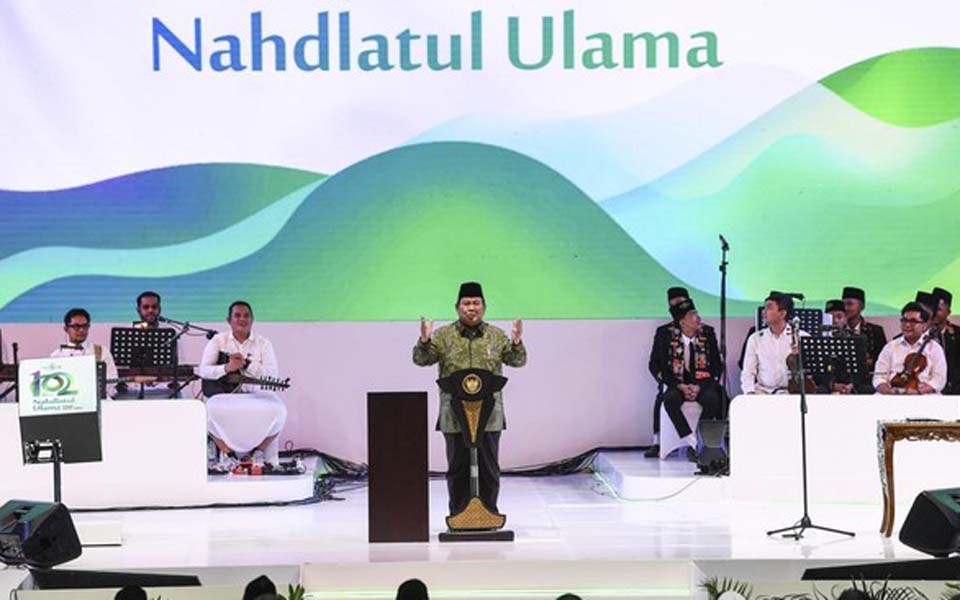Ewo Raswa, Jakarta – The Indonesian Survey Institute (LSI) says that the popularity of President Susilo Bambang Yudhoyono has experienced a decline of as much as 13 per cent over the last month.
According to LSI, Yudhoyono’s popularity is currently experiencing a shift in comparison with the situation prior to the last presidential elections. LSI executive director Denny Januar Aly says that Yudhoyono’s popularity before the presidential elections which brought him victory was based on the promise of change. Post the elections meanwhile, this has translated into a greater level of public satisfaction with the government’s performance.
Denny pointed out that last November the level of public satisfaction was as high as 79.7 per cent while in December this had declined to 66.4 per cent. This means that there has been a significant decline over a period of one month. “This is despite the fact that SBY’s [Yudhoyono] ‘honey moon’ period (of 100 days) hasn’t ended yet”, he said at a LSI press conference titled a “Gloomy and bright portrait of the SBY government’s in the eyes of the public” at the Hotel Sari Pan-Pacific in Jakarta on Wednesday December 22.
Yudhoyono’s popularity has tended to decline more in urban areas compared with the villages. “Because information flow and the sensitivity of the public in urban areas is greater”, said Denny. The drop in Yudhoyono’s popularity in the cities is around 17.3 per cent while in the villages it is only around 10.4 per cent.
In addition to this, a drop has also occurred in the public’s confidence in the president to solve various national issues such as increasing production, unemployment, protection for Indonesian [migrant] workers, social unrest and so forth. The exception to this is [the public’s confidence] on the issue of eliminating corruption which has remained stable at 60 per cent.
Denny believes that there are at least four reasons for the drop in Yudhoyno’s popularity. Firstly, the discrepancy between the initial expectations of Yudhoyono’s supporters and the reality that has come to pass. This means that public disappointment has developed because so far their hopes have yet to be fulfilled.
Secondly the public is impatient with the proposed time frame for change. Most want change within a period of 3-6 months. For the public, Yudhoyono is considered to have failed to bring about concrete change. “They expected the president to move quickly to get things done”, said Denny.
Thirdly, there is public cynicism against the cabinet ministers chosen by Yudhoyono with the public doubting the credibility of a number of ministerial figures. In fact the public’s uncertainty over these ministers is as high as 70 per cent.
Fourthly, the lack of refinement in “public relations” in dealing with popular issues. Since the government came to office there have been many issues which have grabbed the public’s attention including the Lion Air plane crash, the Nabire and Alor earthquakes, the death of human rights activist Munir and the traffic accident on the Jagorawi toll road. The handling of the Jagorawi accident is seen as being most dissatisfactory to the public.
Aside from the issues above, the public believes that the election of Vice-president Jusuf Kalla as the general chairperson of the Golkar Party may result in there being “twin stars in the cabinet”. Prior to the Golkar’s Seventh National Deliberative Council, the 50 per cent of the public believed that Yudhoyono played a dominant role compared to Kalla while around 37 per cent said they have the same role. “In fact this survey was conducted before Jusuf Kalla became the general chairperson of the Golkar Party, the largest [political] party [in the country]”, said Denny.
Denny added that the strengthening of Kalla’s position could become a double-edged sward for the government. On the one had it could boost Yudhoyono’s weaknesses in relation to control of the parliament. However, “On the other hand, it could become a dualism of leadership”, he said. Even more so if there is a difference in political positions or views between the two of them.
At the moment there is a growth among the minority of the public who are negative about Yudhoyono. The irony is that Yudhoyono’s political vehicle, the Democratic Party, scored a level of public dissatisfaction which is quite high, that is 24.2 per cent. This is the second highest figure after former President Megawati Sukarnoputri’s Indonesian Democratic Party of Struggle, that is 24.7 per cent.
[Translated by James Balowski.]






